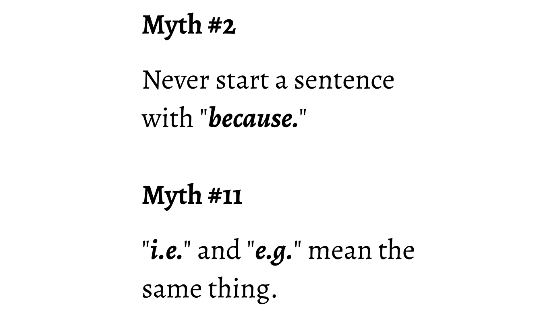For a long time, English teachers have told us some things about grammar that aren’t quite right. They made it seem like grammar rules are super strict and never change. Like, they said you can’t split infinitives or end sentences with prepositions, but actually, it’s okay in a lot of cases. And they hammered into us to never use sentence fragments, but sometimes they can make your writing stronger. These myths just make us worried about grammar instead of focusing on what really matters: communicating clearly. It’s time to let go of these old ideas and understand that language can be flexible and creative.
1.

As per the grammar experts from the Chicago Manual of Style, there’s no need for convoluted reasoning to sidestep starting a sentence with a conjunction. They assert, “There is a widespread belief—one with no historical or grammatical foundation—that it is an error to begin a sentence with a conjunction such as and, but, or so.” Furthermore, they elaborate, “In fact, a substantial percentage (often as many as 10 percent) of the sentences in first-rate writing begin with conjunctions. It has been so for centuries, and even the most conservative grammarians have followed this practice.”
2.
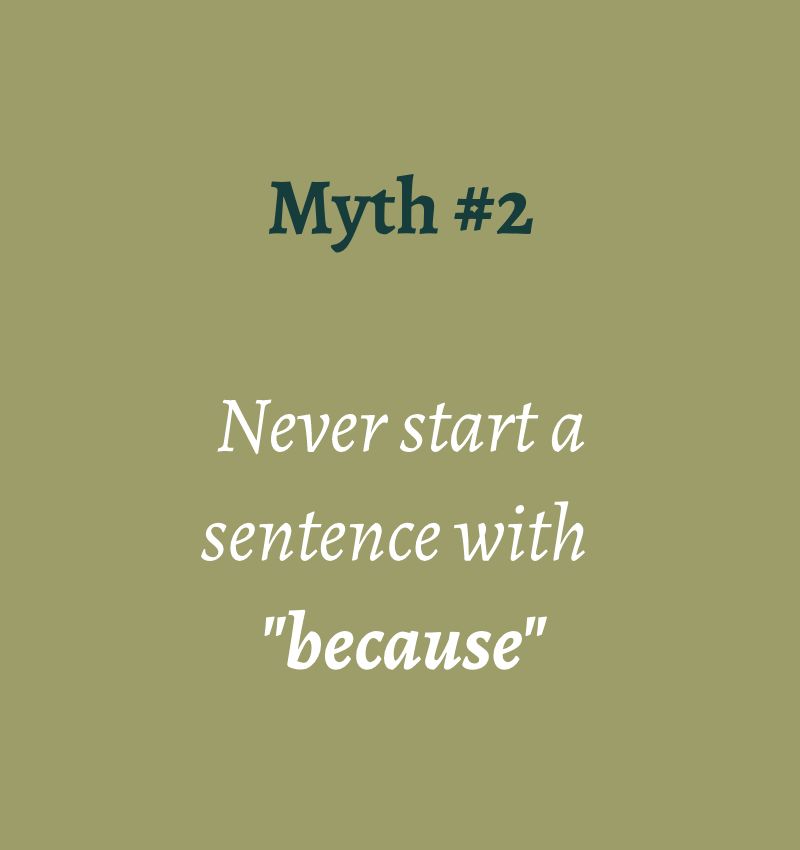
During the initial stages of writing development, starting a sentence with “because” may frequently result in a sentence fragment. Hence, you likely learned to refrain from doing so altogether. However, as long as your sentence contains at least one independent clause, it is considered acceptable.
Correct: Because I missed the bus, I didn’t attend school.
Correct: I didn’t attend school because I missed the bus.
Incorrect: I didn’t attend school. Because I missed the bus.
3.
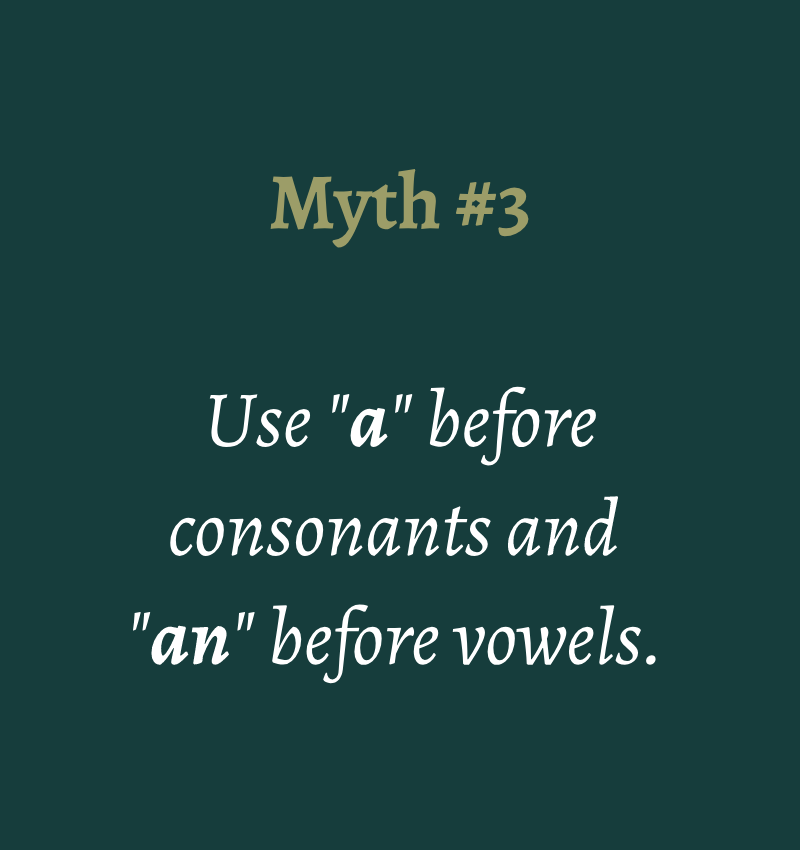
Make sure to use “an” before words that begin with vowel sounds and “a” with consonant sounds.
Correct: I’m thinking of starting my exercise an hour earlier.
Correct: He bought an NFT.
4.
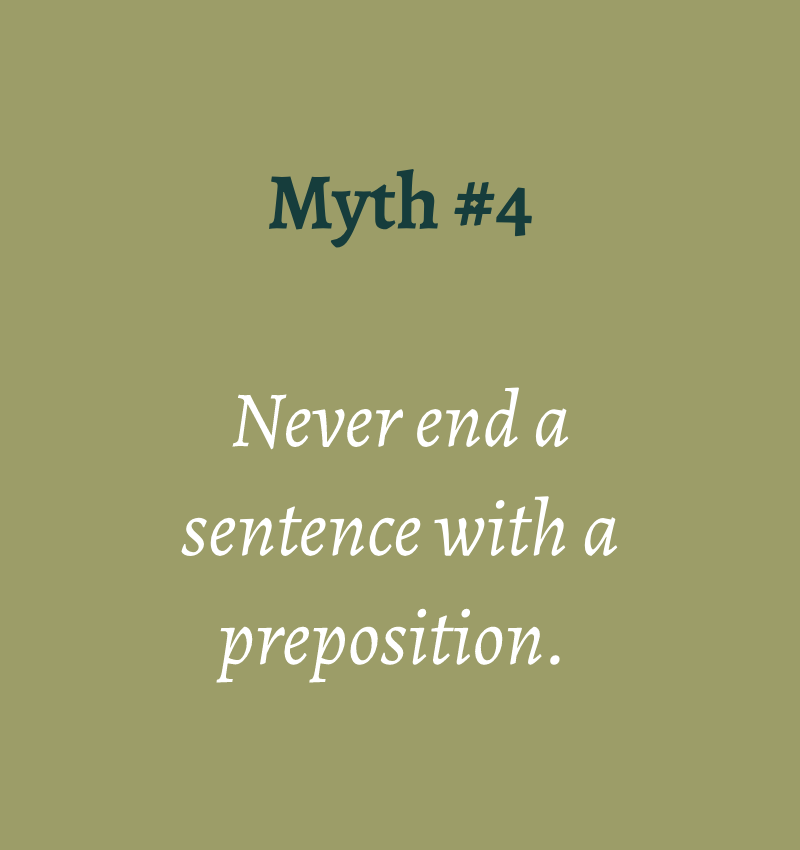
Prepositions are words you should never end a sentence with. Or should you? Lots of people are told it’s wrong to end a sentence with a preposition—words like “on,” “from,” “for,” “by,” “above,” “over”—but that’s not true. Grammar Girl explains that sometimes ending a sentence with a preposition is needed. For instance, “I want to know where he came from” could be said as “I want to know from where he came,” but that sounds strange. Nobody says that.
5.

You might have heard that you shouldn’t describe people using the word “that.” But that’s not a hard and fast grammar rule. Merriam-Webster’s Dictionary of English Usage says it’s perfectly fine to say something like “kids that are late for school will miss math class.”
6.

Grammar experts acknowledge that it can feel odd to refer to a cherished pet as an “it.” Following the AP Stylebook, you can use “him,” “her,” or “who” for an animal, as long as the animal has a name or you know its gender.
7.

You may have been told that “such as” is the only correct way to start listing examples. However, it actually depends on what you want to say.
For example:
I love active dates like fishing, skydiving, and hiking.
I love active dates such as fishing, skydiving, and hiking.
Both are correct, but the first one suggests a comparison. When you say you like “dates like fishing,” it implies you might enjoy other dates similar to fishing.
8.

Oxford Dictionaries explains that this is another grammar myth you can ignore. They also point out that in some cases, “trying to avoid a stranded preposition could lead you to get your linguistic knickers in a terrible twist.”
For example:
The baby has no one to play with.
The baby enjoys being fussed over.
9.

The so-called “rule” suggests that you should never place an adverb in the middle of an infinitive. Think of the Star Trek quote, “to boldly go where no one has gone before.” “To go” is the infinitive, and “boldly” splits it. However, there’s no solid evidence that splitting infinitives is incorrect. “The only logical reason to avoid splitting infinitives is that there are still a lot of people who mistakenly think it is wrong,” explains Grammar Girl.
10.

Although active voice is usually preferred, passive voice is rarely incorrect. In certain situations, it can even be useful. As noted by writeathome.com, if you’re aiming to evoke sympathy for your subject, you might opt for passive voice. This is evident in the contrast between “Grandma got run over by a reindeer,” and “A reindeer ran over Grandma.”
11.
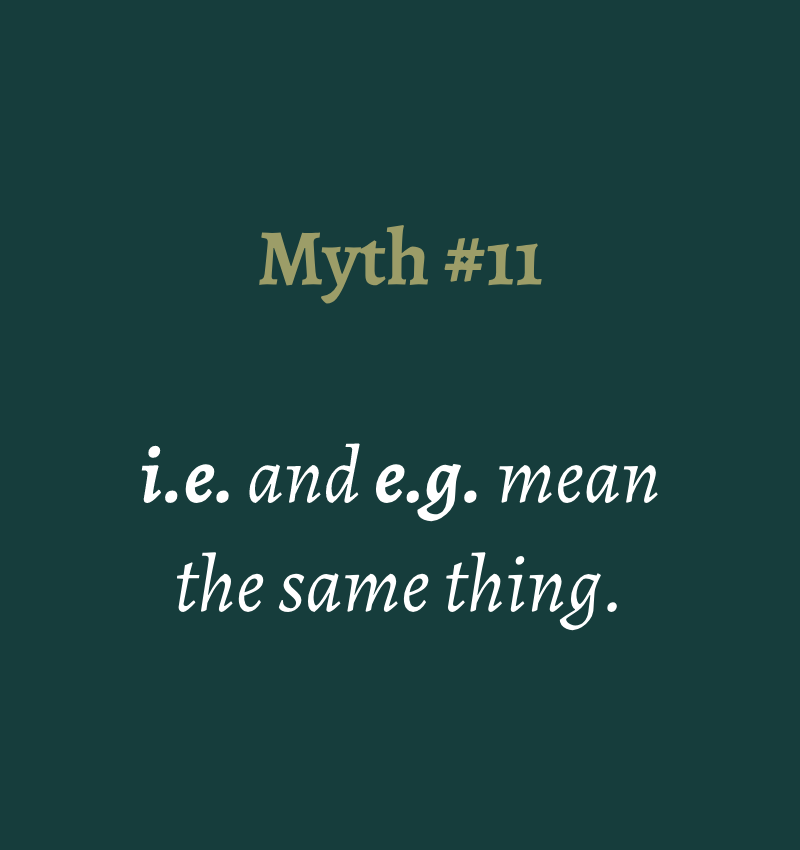
“I.e.” and “e.g.” are Latin abbreviations, but they carry different meanings. “E.g.” stands for “exempli gratia,” meaning “for example.” On the other hand, “i.e.” stands for “id est,” which translates to “in other words.”
12.
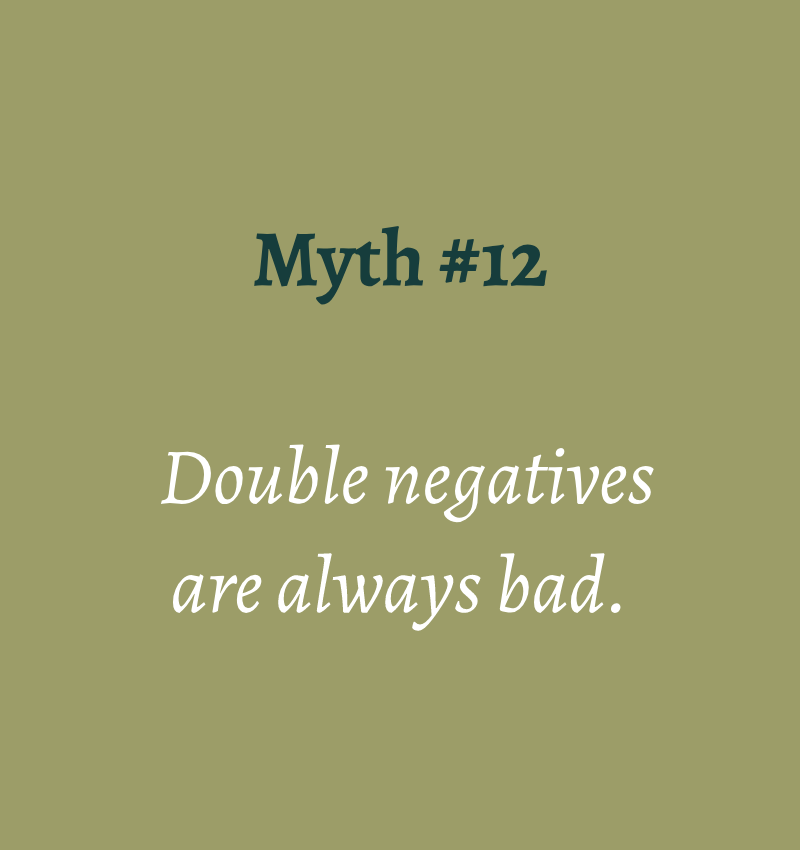
Most of the time, using two negatives in a sentence can make it hard to understand. But according to Oxford Dictionaries, there’s one situation where it’s okay: when you want to express something subtly. For example, they say if you say “I am not unconvinced,” it means you’re not completely convinced, you might have some doubts. It’s a way to show a bit of uncertainty that you wouldn’t get if you just said, “I am convinced by his argument.”
13.

When you were in school, you might have been taught that any long sentence is a run-on sentence. But that’s not always the case. In reality, a sentence can be long and still be well-structured. A real run-on happens when you combine two complete sentences without separating them properly.
14.

Many people have heard from a self-proclaimed grammar expert that there’s only one correct way to use an apostrophe with words ending in “s.” But according to the real experts, it’s just a matter of style.
For example, both sentences below are correct.
The Harris’s cat is in their yard.
The Harris’ cat is in their yard.

